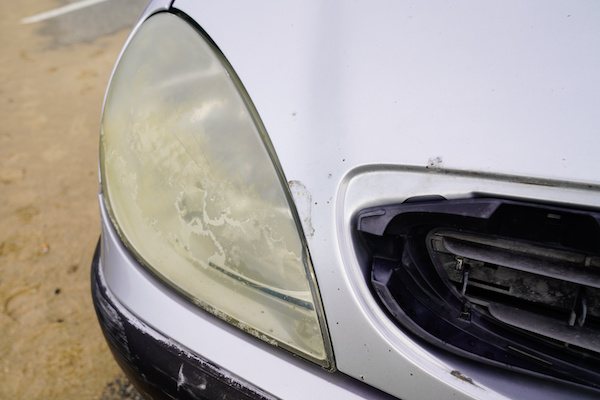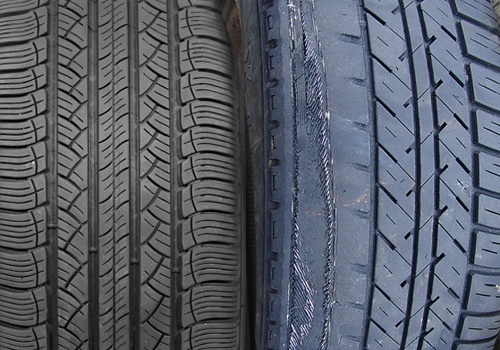Posted on 2/28/2023
Many Subaru owners do everything they know when it comes to maintaining their vehicle except to change the spark plugs. Spark plugs are easy to overlook. Most of the time, they simply ignite the air-fuel mixture in the combustion engine that makes your vehicle run, and we don't give them a second thought. Because of the role they perform, they must be in good condition all the time, otherwise your vehicle’s engine might not function properly. Signs your Subaru spark plugs need replacement Here are the top signs that indicate spark plugs may have reached the end of their life: Check engine light comes on If your spark plugs are failing, you Subaru’s onboard computer will turn on the check engine light. You may also notice engine misfires. Starting troubles A telltale sign that your spark plugs are bad is when you experience troubles starting your Subaru. Since this component is responsible for providing the ... read more
Posted on 2/28/2023
If you’re like most vehicle owners, you probably dread the check engine light on your dashboard popping on. This is mostly because the light could mean many things, some which are easy to fix while others may involve costly repairs. The light essentially means that your Subaru’s onboard diagnostics system has detected a malfunction that you need to have checked out and fixed as soon as possible. To know exactly what your Subaru’s computer is trying to tell you when the check engine light comes “on”, you need to have a mechanic run diagnostics test using specialized software. Toole’s Garage Stockton provides comprehensive engine diagnostics and repairs, including full range of check engine light diagnostics. If the check engine light is flashing, stop the cars in a safe spot, and turn off the engine. Tow the car to your local mechanic for repairs. Driving your Subaru while the check engine light is flashing can cause expensive damage. Commo ... read more
Posted on 2/27/2023

Headlight restoration is the process of restoring the clarity of your car's headlights, making them look like new. Over time, the plastic lens of your headlights can become hazy and yellowed, reducing their brightness and making it harder for you to see while driving at night. In this blog, we'll discuss why headlight restoration is important and the benefits of getting it done. Why Are Headlight Restorations Important? The main reason why headlight restoration is important is that it improves visibility while driving at night. When your headlights are hazy and yellowed, they don't provide enough light to see the road ahead, putting you and other drivers at risk. A well-restored headlight provides better visibility, making it easier for you to see and be seen by other drivers. This increases your safety on the road and reduces the chances of an accident. Last but not least, a well-maintained vehicle not only performs better but also looks better. Yellowed and hazy h ... read more
Posted on 2/26/2023
Toole’s Garage Stockton offers broad range of automotive repairs, including Audi engine repair. Diagnosing and repairing engine problems requires highly refined skills, especially when dealing with fine German engineering. Fortunately, our technicians are not only equipped with state-of-the-art digital diagnostic tools, but also possess extensive knowledge as validated by their certification through the National Institute for Automotive Service Excellence (ASE). When your Audi develops engine issues, bring it to our Stockton auto care facility, and we will get the problem diagnosed and fixed, so your Audi can server you reliably for years to come. Engine problems can be caused by age, overheating, timing belt or timing chain issues, lack of regular maintenance, or simply because of a defective part. While the car manufacturers have made tremendous improvements in the production quality, sometimes an inferior part will get produced and slip through quality control. Fortunat ... read more
Posted on 2/23/2023
Even though Audi, along with many other manufacturers, has started using timing chains, there are still plenty of Audi vehicles that use the timing belt. It synchronizes engine’s camshaft and crankshaft, regulating the opening and closing of the valves and pistons. At Toole’s Garage Stockton we offer extensive Audi maintenance services and repairs, and timing belt replacement is among the most important. Due to old age and long usage, the timing belt may become worn out and will need to be replaced. One should never ignore a worn-out timing belt as it could break, results in potential engine damage. Given the severity of problems that a broken timing belt can generate, we highly recommend being proactive when it comes to timing belt replacement. The rule of thumb is that a timing belt should be replaced every 100,000 miles or so. But you should check Owner’s Manual for your particular model to find out at what intervals the timing belt should be replaced. As an alter ... read more
Posted on 2/21/2023
At Toole’s Garage in Stockton we offer full range of emissions diagnostics and repairs, including Audi oxygen sensor replacement. The internal combustion engine of your Audi requires the mixture of air and fuel to ignite in the cylinders. To ensure a good air-fuel ratio, your vehicle comes with an oxygen sensor, which is located in the exhaust pipe. The oxygen sensor (commonly referred to as “O2 sensor”) measures the amount of oxygen in the exhaust and communicates this information to the computer that adjusts air intake for the engine. A bad or failing oxygen sensor can lead to poor engine performance and high emissions. Signs your Audi’s oxygen sensor is failing A failing oxygen sensor can generate various symptoms that alert you of the problem. Here are the top symptoms to watch out for. Check engine light comes on The easiest way to know that something is wrong is when the check engine light comes on. The warning can ill ... read more
Posted on 1/30/2023
.jpeg)
Brake pads are responsible for making contact with the rotors and taking your vehicle to a full stop. But to understand their importance, you have to know the system they are a part of. In order for the brake pads to do their job, there are a couple of other parts that they depend on. Brake Systems And What They Do The brake system consists of four main parts that work in unison to keep you safe, they include: Brake lines are connected to the brake pedal, and they function based on hydraulic pressure. When pressure is applied, the liquid inside moves a little bit. Calipers have pressure sensors inside of them, which are connected to the brake lines and sense the difference of the hydraulic liquid. Then they squeeze the two brake pads mounted on both sides of the rotors. Rotors are big, metal circles that are connected to the wheels. Brake Pads make contact with the rotors to slow down the vehicle. These components transfer the input of the driver from the pedal to the wheels. If ... read more
Posted on 1/27/2023
On average, you should change your Audi’s tires every 5-6 years but there’s really no hard-and-fast rule, since there are many factors affecting tire life, including maintenance, driving style, road conditions etc. While it’s perfectly normal for tires to wear out, excessive or uneven tire wear is not normal and could be the symptom of an alignment or suspension problem. Causes of uneven tire wear Ideally, tires should wear evenly but sometimes, this is not the case. You may experience uneven tire wear if your Audi has any of the following issues: Unbalanced wheels Damaged or bent wheels Incorrect tire pressure Bad wheel alignment Worn-out suspension Signs of uneven tire wear Knowing the signs of uneven tire wear will help to maintain your Audi in peak condition, and will help you to decide when to ask your local mechanic for help: Drags or pulls to one side Vehicle pulling to one side when driving co ... read more
Posted on 1/26/2023
.jpeg)
Honda Oil Leak Repair in Stockton, CA Engine oil is critical for your Honda’s optimal performance. It lubricates the moving parts of your engine, providing protection against heat and friction. Because oil is vital for your engine’s proper functioning, an oil leak is a serious issue that you should not ignore. A serious oil leak could lead to immediate problems, including overheating, and also could lead to massive damage of your Honda’s engine. Thus it’s best to address the leak in its early stages – if you see any oil drops on the floor of the garage or in a place where you habitually park, it’s time to call your friendly mechanic. Commons symptoms of oil leaks Here are some telltale signs that your Honda has an oil leak problem. Dark drops ( hopefully not a puddle) under your car The most obvious sign of an oil leak is dark puddles where your car was sitting. Sometimes, it’s hard to ... read more
Posted on 1/26/2023

Honda Wheel Alignment in Stockton, CA At Toole’s Garage Stockton we offer a wide range of Honda services, including wheel alignment. Your Honda will need a wheel alignment about once a year – our roads are full of potholes and bumps. Even bumping into a concrete parking stall can knock the wheels out of alignment. Failure to get the wheels aligned for a long time will wear your tires out faster, and will result is less control over the vehicle – we often don’t notice this because it’s a very gradual process. But the tire wear shows unmistakable signs of wheels being out of alignment. Here are a few signs that indicate that wheel alignment needs professional attention: Car pulls to the left or right The most common sign that your Honda needs wheel alignment is that it pulls to one side when you’re traveling on a straight, level road. You may find yourself having to keep a slight pressure on the steering wheel to k ... read more